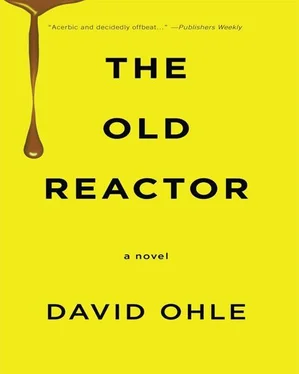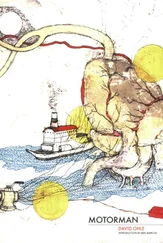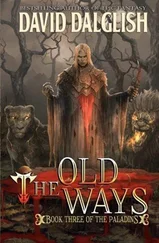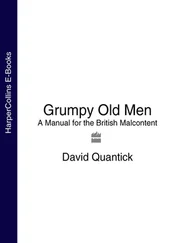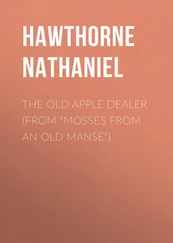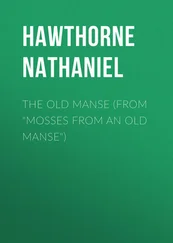David Ohle - The Old Reactor
Здесь есть возможность читать онлайн «David Ohle - The Old Reactor» весь текст электронной книги совершенно бесплатно (целиком полную версию без сокращений). В некоторых случаях можно слушать аудио, скачать через торрент в формате fb2 и присутствует краткое содержание. Год выпуска: 2014, Издательство: Dzanc Books, Жанр: Современная проза, на английском языке. Описание произведения, (предисловие) а так же отзывы посетителей доступны на портале библиотеки ЛибКат.
- Название:The Old Reactor
- Автор:
- Издательство:Dzanc Books
- Жанр:
- Год:2014
- ISBN:нет данных
- Рейтинг книги:4 / 5. Голосов: 1
-
Избранное:Добавить в избранное
- Отзывы:
-
Ваша оценка:
- 80
- 1
- 2
- 3
- 4
- 5
The Old Reactor: краткое содержание, описание и аннотация
Предлагаем к чтению аннотацию, описание, краткое содержание или предисловие (зависит от того, что написал сам автор книги «The Old Reactor»). Если вы не нашли необходимую информацию о книге — напишите в комментариях, мы постараемся отыскать её.
The Old Reactor — читать онлайн бесплатно полную книгу (весь текст) целиком
Ниже представлен текст книги, разбитый по страницам. Система сохранения места последней прочитанной страницы, позволяет с удобством читать онлайн бесплатно книгу «The Old Reactor», без необходимости каждый раз заново искать на чём Вы остановились. Поставьте закладку, и сможете в любой момент перейти на страницу, на которой закончили чтение.
Интервал:
Закладка:
“Let’s get inside. You’ll never guess who’s in there. None other than the famous Brainerd Franklin.”
Sorrel said, “Oh, that should be interesting. I hear he smells bad up close. I hope we don’t get seated next to him.”
A sandwich board set up outside the front door listed the night’s specials: Scrapple, Kerd, Meal, Mud fish, Sturgeon (seasonal), Trotters .
“It all sounds good to me,” Salmonella said.
Although the place was only moderately busy, many of the tables were reserved for Franklin, his handlers, fans, guests, and the visiting Bunkerville press, so there were only a few unoccupied. Sorrel chose the one farthest from Franklin, who was answering questions shouted at him from the press.
“Do you jellies believe in an afterworld?”
Franklin answered in slow, deliberate fashion, as though he were drugged. “After what? Oh, I get it. Sure, yeah, of course. I hope so, anyway. A jelly doesn’t any more want to be dead than you do.”
“Why does golf need a jellyhead player?”
“Ask a simpler question. And get me another plate of fish.”
“What’s a sand wedge for?”
“To eat, I think. Isn’t it? My trainer always made peanut butter ones for me when you could get it, and bread.”
“Who makes your boots?”
“The Franklin Bootery, back in Bunkerville. I own it. I’m rich. It feels good. It’s one thing to be a poor jellyhead, but a poor free man? It must be awful.”
“Do jellies believe in any gods?”
“Are you kidding? No god ever gave a jelly a break. I dig Masonry, though. I’ve got a scooter and I love to ride in parades, especially on Coward’s Day.”
“Do you have a philosophy of life?”
“A what?”
“Like a guiding principle, sort of a rule or rules that you follow?”
“Life is a bogey, not an eagle. We are always one stroke over, always in hazard. Fairways turn foul, every tee off ends in a slice. The game is forever uneven, the score is never settled. I often feel under par, and sometimes vengeful, which is why I hardly ever carry aerosol deformant on my person.”
“So, where do you go from here?”
Franklin bent over and held his abdomen. “Excuse me, please, but it’s time for me to make for the potty. I’m all loaded up. Got to dump it.”
Two handlers grasped Franklin by the elbows and walked him to the gutter outside. Even at that distance, and with the doors closed, Saposcat’s patrons could hear Franklin’s apish grunting and smell the odor of his stool.
“What a disgusting display,” Sorrel said.
“It sounds like an angry bowel,” Moldenke said.
Salmonella held her nose. “That is bad, bad, bad.”
Moldenke wanted things to go well, despite Franklin’s display. He studied the menu with seeming calm. “Mmmm, the river sturgeon looks good.”
Sorrel summoned a busboy. “Tell someone to turn on the ceiling fans. It smells awful in here.”
“Yes ma’am.”
After switching on the fans, a waiter came to the table, pad and pencil in hand. Sorrel said she needed a minute or two. “I’m torn between the mud fish and the kerd.”
Salmonella elected to have the mud fish.
Moldenke ordered sturgeon steaks. The waiter shook his head. “I’m so sorry, these steaks are driftwood-grilled outdoors and can only be served when the weather is fair.”
“All right, give me the kerd with a side of the trotters and a pint of bitters.”
Sorrel finally made up her mind. “I’ll have the trotters too, and a glass of bitters.”
“Does the girl want anything to drink?”
“Yeah, I sure do,” Salmonella snorted. “I want some green soda.”
“I’ll get that order in right away.”
When the drinks arrived, it seemed to Moldenke the right time for conversation. “Sorrel, tell me, what is your favorite color?”
“Black. I like black best.”
“Besides ugly, you’re pretty stupid,” Salmonella said. “Black isn’t a color. Everybody knows that.”
Sorrel was offended and Moldenke grew impatient. “The whole idea of color is a human concept, a word. That’s all. Drink your soda and hush.”
Even through Sorrel’s macramé veil, one could see her face flush in anger.
“Her father abandoned her,” Moldenke said. “I took her in for a night. Call me soft-hearted.”
“She belongs in the Young People’s Home.”
Salmonella twirled her hair anxiously. “Don’t listen to that, Moldenke. I do not want to go there.”
Just as the waiter set the plates on the table, someone from the press yelled out. “He’s had a heart attack! The great golfer is dying!” Six or seven of his handlers carried Franklin and placed him in his motor, which sped away. It was rumored that he would be taken to his yacht — the Blue Crab , docked at Point Blast — where his personal physician had been stationed.
The Altobello Young People’s Home, run by the Sisters of Comfort, was a walled fortress of youthful freedom, a freedom thought by some to be more like neglect. Ordinary young people lived largely unsupervised among wild young jellyheads, who were ever ready to bare their blue teeth, spit at you, or squirt you with deformant. With the shape of an octagon, the Home surrounded a central commons, where young people of both sexes were set free without food, clothing, or shelter. It was everyone for him or herself.
A healthy grove of pines grew there on a rise above a sizable fishing pond, an apple orchard, several acres of rich soil set aside for crops and enough of a meadow to graze a few animals. It was thought that in those surroundings and supplied with the tools of survival, that the young people would learn that life is what you make of it.
Salmonella was glum and quiet as she and Moldenke rode the streetcar. He tried to both excuse himself from what he was about to do and at the same time explain why he was doing it.
“First of all, you’re not my child. Your father abandoned you. The Home is where you belong. If I see your father, I’ll insist he come and get you.”
When the conductor called out, “Young People’s Home,” Salmonella began to weep.
“I’m not going.”
Moldenke took her by the hand and pulled her into the aisle. “This is our stop. We’re getting off.”
She stiffened her body. “No!”
“Yes!” Moldenke dragged her up the aisle and down three steps to the pavement. On each step she banged her knees. By the time Moldenke had pulled to the Home’s gate, streaks of blood ran down her legs and her kneecaps were shredded.
There was a Sister of Comfort at a sentry post. “Just the one, sir?”
“Yes. Abandoned by her father. I can’t look after her.”
“He could. But he won’t, is the truth.”
“What’s your name, dear?”
Salmonella folded her arms and pouted. “Look at him. He needs my help. He can barely take care of himself. It’s crazy to put me in here. He’s as stupid as I thought he was when I met him.”
“She calls herself Salmonella,” Moldenke said. “She’s about fourteen, fifteen. No one really knows — even her father.”
“You can leave her with me,” the Sister said. “We’ll get those street clothes off, clean her up, and turn her loose on the commons.”
“Thank you, ma’am,” he said. “Just to clear something up, do the jellies in there have deformant?”
“All weapons are allowed.”
“Guns?”
“Yes, guns. Knives, too. Anything, really. That’s part of what we try to drill into these young people, that pure freedom is just that: pure. Once we’re completely free in body and soul, we have no need of aggression. Everyone is safe, especially if they are armed. It keeps things in balance. It’s the way freedom is arrived at.”
Читать дальшеИнтервал:
Закладка:
Похожие книги на «The Old Reactor»
Представляем Вашему вниманию похожие книги на «The Old Reactor» списком для выбора. Мы отобрали схожую по названию и смыслу литературу в надежде предоставить читателям больше вариантов отыскать новые, интересные, ещё непрочитанные произведения.
Обсуждение, отзывы о книге «The Old Reactor» и просто собственные мнения читателей. Оставьте ваши комментарии, напишите, что Вы думаете о произведении, его смысле или главных героях. Укажите что конкретно понравилось, а что нет, и почему Вы так считаете.
